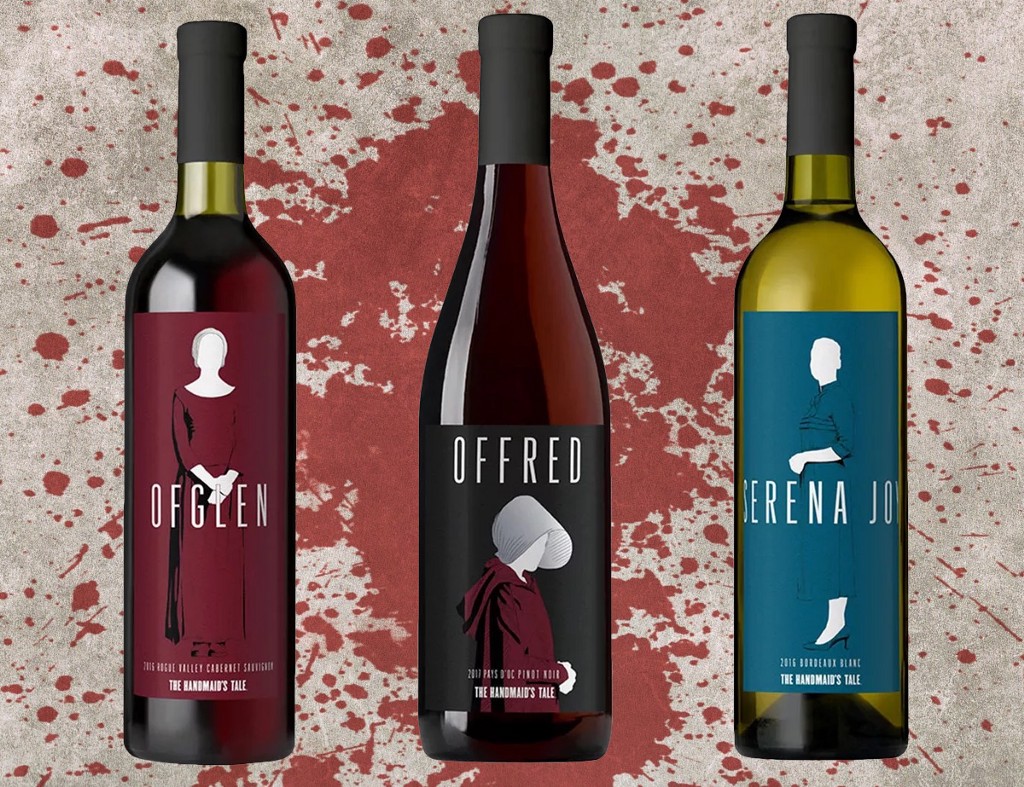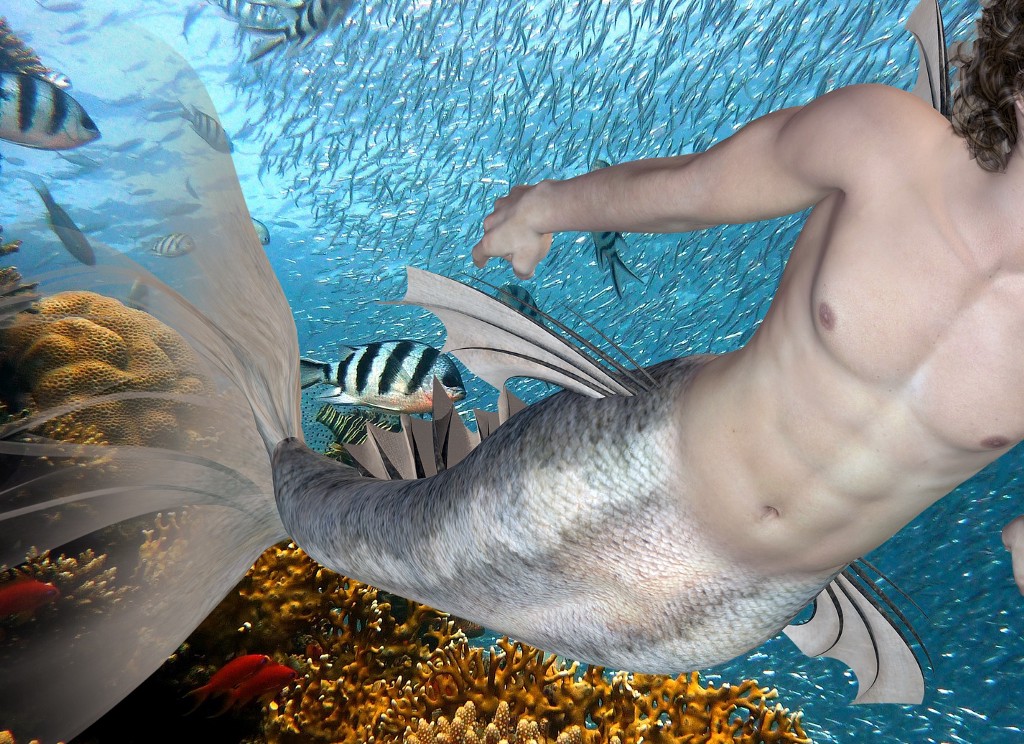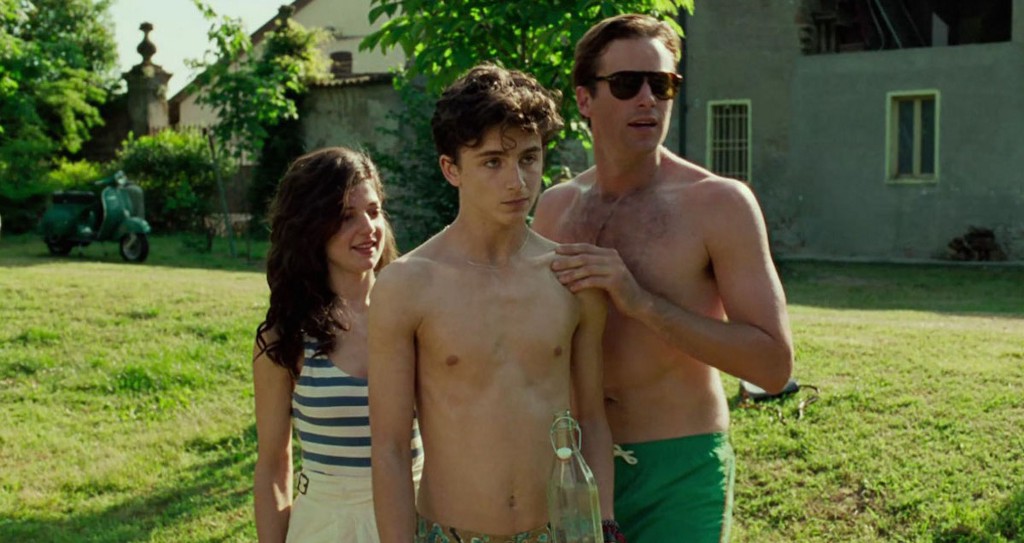Books & Culture
Magic Mike XXL Is Basically “The Odyssey,” But With Butts
The quintessential stripper road trip film both follows and transcends Joseph Campbell’s traditional Hero’s Journey

This article was adapted from a talk presented at Drunk Education: A Tribute to Magic Mike XXL. Video is available here.
Tolstoy once said there are only three stories in the world: A man goes on a journey, a stranger comes to town, and Big Dick Richie’s dick is too big.
Ok, so one of those is actually a secondary plotline of the greatest work of art of the 21st century, Magic Mike XXL. Also, technically, Tolstoy may not have said any of this, even the first part; it’s one of those quotes so widely attributed to so many different authors by people trying to make generalizations about literature that it might as well be attributed to Marilyn Monroe. But there is a beloved idea that most stories can be distilled down to a few underlying plots, and that maybe all great, important narratives are ultimately each just a retelling of a single myth. As Magic Mike XXL is the greatest journey story of our time, it would then be fair to assume that it must, too, be a retelling of this same myth.
In 1949, Joseph Campbell published The Hero with a Thousand Faces, a book that popularized the idea of the monomyth, which says that all great stories — the large narratives by which cultures understand their origins and their heroes, from our small everyday lives to way civilizations are founded — map onto the same basic, repetitive plot. All hero myths, claimed Campbell, are really the same hero myth, across time and cultures. The Hero With A Thousand Faces remains as popular with high school English classes as it is with men in Reddit forums who think the fall of Rome is somehow illustrative of why women won’t sleep with them.
The Hero’s Journey to this day underlies a lot of our most famous popular culture: the big, heroic, and usually extremely male stories such as Star Wars (George Lucas talked in numerous interviews about having actively based his trilogy of films on Campbell’s work) and Harry Potter and Moby-Dick and The Odyssey, the grand stories of grand men on grand journeys. Big Dick Richie’s journey to find someone for whom his dick is not too big, and Mike’s quest to accept his calling as a male entertainer, are — at least in my mind — no less noble than Odysseus’ striving to get home or Frodo’s task to bring the ring to Mount Doom and destroy it. These are the stories of great men doing great things, and Magic Mike XXL is also the story of great men doing great things. So, if we hold with Campbell’s idea of the heroic monomyth, MMXXL, like all great epics and legends, must map onto the Hero’s Journey. Magic Mike’s road trip to a Myrtle Beach stripper convention is a story for our time to rival The Iliad, The Odyssey, The Lord of The Rings, and Star Wars. In fact, it could probably replace any or all of these things and the culture would benefit.
Magic Mike’s road trip to a Myrtle Beach stripper convention is a story for our time to rival The Iliad.
The reason the Hero’s Journey remains a prominent and popular way of understanding stories is not because it’s accurate to something fundamental about storytelling — far more stories exist outside this template than conform to it — but because these stories center men, and therefore appeal to a certain type of man who wants confirmation of his own importance. Campbell’s hero appeals both to capitalism and to the misogyny built into our capitalist society and others like it. Magic Mike, on the other hand, is a story about men doing great things that manages to avoid all the traps of the great man narratives, and the specific ways in which it deviates from these narratives demonstrates exactly what is so useful and maybe even revolutionary about it.
Campbell divides the Hero’s Journey into three parts, each with five or six subsections; supposedly most hero myths, from ancient religious stories on down to Star Wars and Harry Potter, follow these same steps. In the first stage, the hero hears the call to adventure and sets off on his quest. Magical Michael is but a simple furniture maker, trying to run a business, attempting to gain enough financial stability to provide healthcare to his one employee. But then — he hears the call.
Luke Skywalker cannot deny that the Force means he must have a greater purpose. In much the same way, Magic Mike dances to ‘Pony.’
The call comes in the form of a fake invitation to a funeral, and in the (more compelling) form of a butt-naked Joe Manganiello pushing Mike into a motel pool. But in the next step of the Hero’s Journey, the Refusal of the Call, Mike does not want to give up his simple, hard-earned life of artisanal furniture making. He heads home, not taking the invitation for one last ride. Once home, however, he hears the call again, this time in the unignorable strains of Ginuwine’s “Pony” in his woodworking studio. Mike is called — to dance. He cannot help but dance, his nigh-magical skill at sexdancing taking over against his conscious wishes. This might be seen as one of the next steps on the Hero’s Journey, the crossing of the threshold, in which the hero accepts that he must undertake the mission, and leaves his regular, familiar life behind to venture into the unknown. Often, this takes the form of an acknowledgement of his own powers — Luke Skywalker cannot deny that his ability to use the Force means he must have a greater purpose; Harry Potter learns from a shaggy stranger that he is not a normal boy, he’s a wizard. In much the same way, Magic Mike dances to “Pony,” and Big Dick Richie finally declares that he is not a fireman, he’s a male entertainer.
This is where we see our first hiccup: Mike’s story lacks the stage Campbell calls The Meeting of the Mentor. There are no mentors in Magic Mike XXL, one quality that distinguishes it both from the early film to which it is a sequel and from the traditional Hero’s Journey. We’ll come back to this, as it’s crucial to explaining how Mike ultimately doesn’t just enact the Hero’s Journey, but transcends it.
But from here, this modern Florida man Odyssey seems, again, to follow the required patterns to be a Campbellian hero narrative. The final stage of the first part of the narrative is what Campbell refers to as The Belly of the Whale. The hero is now fully embroiled in his quest, and it proves harder than he expected, and begins to transform him. It is clear at this point that the only way out is through. This might be the drag show that the crew attends in Jacksonville, where Mike and Ken work out their differences through a cathartic ball-punching and the gang share their hopes and fears — Tito wants to open an artisanal frozen yogurt truck — around a campfire on the beach. The next morning they set off on their quest again, struggling with how to plan their acts for the show and whether they are all truly committed to this endeavor.
The second section of the Hero’s Journey begins with a stage called The Road of Trials, which applies perfectly to Mike and his buddies’ journey, since they literally set out on a road and encounter difficulties driving on that road. (It’s hard to drive a truck while rolling on molly.) The Road of Trials is where the hero proves himself by fighting through any numbers of tests or difficulties on the way to his ultimate goal. The gang undergoes the trial of the gas station, in which Big Dick Richie learns what it truly means to be a male entertainer (and not a fireman) by making a bored, unimpressed employee smile with his dancing. They undergo the trial of the car crash caused by taking molly and doing a prayer circle while driving, and the trial of the hospital and the trial of the comedown.
The next stage in the Hero’s Journey is the Meeting with the Goddess, which obviously tracks, as the next place the gang goes is Rome’s, Jada Pinkett Smith’s magical subscription membership brothel in Savannah. Jada Pinkett Smith is, both in the movie and in real life, obviously an actual goddess, and Mike receives advice and help from her when he’s at a low point, in much the traditional manner of this juncture in the Hero’s Journey. (Think Circe, Galadriel, or Athena.) But the stages that follow are where Magic Mike undeniably parts ways with Campbell’s template.
The next section of part two of the Hero’s Journey includes such stages as Woman as Temptress, Atonement with the Father, and Apotheosis. Here the hero resists temptation, often in the form of a woman or some other kind of sinful female-figured hedonism, and then confronts, struggles against, and ultimately makes peace with, his father (sometimes his literal father and sometimes the larger idea of his origins or inheritance), in order to triumph at the quest he set out to do. These stages reveal some of the reasons of the Hero’s Journey is so popular with a certain type of man, and why it’s stuck so deeply into certain sections of culture: its engine is deep-rooted ideas of traditional masculinity, coupled with misogyny. This particular type of sin-and forgiveness, dads-and-bros narrative is deeply ingrained in our culture and has a lot to do with much of the sickness in it. And it’s completely absent in Magic Mike.
The sin-and forgiveness, dads-and-bros narrative is deeply ingrained in our culture. And it’s completely absent in Magic Mike.
There are no dads in Magic Mike. Oh, there are daddies; Mike, at a moment in the movie that is deeply important to me personally, himself calls Big Dick Richie Daddy, and every man in the film could be said to be a daddy in one way or another. It is a story full of daddies, but it is utterly free of dads. We spend time with a room full of older women, most of whom are moms, but their husbands are absent and, as is revealed, pretty much useless. The Hero’s Journey, on the other hand, is the daddest of all possible narratives, by and for and about dads, full of dads, littered from end to end with dads dadding. Dads are our link to the past, to things as they are and as they have been; dad stories are stories about doing things the correct way because this is the way things have always been done, about accepting traditions as correct, about achievement that gains validation and praise because it fits into the systems that already exist. Most heroes are dads because most heroes uphold the status quo. The heroes of Campbellian narratives seem to be rebels, but they are usually only the central figure in a story meant to teach us why the king is the king.
Magic Mike has no interest in dads, or kings, or achievement. The primary point of the Hero’s Journey is that the quest leads up to a decisive victory that can be won; the day can be saved, good can triumph over evil. But Magic Mike, although it seems like a quest, is a story totally uninterested in victory or in achievement. Do Mike and his crew win the stripper contest? It’s never discussed. Is the convention they travel to actually a contest? Mike’s crew’s envy of the success of the other group of strippers who perform the Twilight routine might imply that it is, but besides that very dim implication, nothing else would lead us to believe that their goal is to win rather than simply to enjoy performing, to be the best male entertainers they can be. Magic Mike is a decidedly anti-capitalist story. It doesn’t want to gain anything but joy, and has no interest in the upward progression of a narrative any more than it is interested in the approval of dads.
Magic Mike XXL is a story full of daddies, but it is utterly free of dads.
Similarly, the way Magic Mike treats the women in the movie is quietly astonishing. The hero in the Hero’s Journey is very specifically male, and many of the stages of the journey Campbell documents are specifically about female figures, all of whom are there either to tempt the hero away from his purpose, or assist him in achieving it. Women are, canonically, not individuals in these stories, able only to exist as they influence a man or signify his trials and redemption. But because Magic Mike is free from the relentlessly goal-achieving shape of the kinds of stories that people who get angry on the internet about Star Wars love, the women in it don’t have to represent either a victory or an obstacle to victory. Nobody gets a girl in Magic Mike XXL, or even tries to, because women aren’t achievements—which means instead they can be people, with the kind of backstories and varied human desire only given to men in traditional stories about male heroes.
The third and final part of the Hero’s Journey is the Return, in which the hero must go back to his community, the home from which he set out, and bring the lessons he learned and abilities he gained on his quest back into the regular life he lived before. The hero in the end returns from the magical to the un-magical, and must learn to square one with the other. Odysseus’ slaughter of the suitors, winning back of his wife, and pilgrimage carrying his oar is one version of this; the roughly 52 interminable endings of Lord of the Rings are another. This cyclical nature of the journey is meant to teach us that life goes on, that doing great and noble things does not undo or overthrow the established pattern of our days. We might be called to greatness, but we will still have to go home. We may rise to great heights, but we cannot fundamentally change who we are, and part of the hero’s responsibility is to be loyal to his place in the world.
Magic Mike doesn’t subscribe to any of this. The magic doesn’t have to give way to regularity and the status quo; nobody has to go home. There’s no return, no reconciliation, no journey back, no anxious reassurance that despite this one-time foray into the realms of legend, Mike is but a humble furniture-maker who knows his place in the world. We’re never reassured that quietly dancing to “Pony” alone in his studio is enough for him. Instead, the movie ends with a preposterously long four-way dance-sex routine, a male entertainment performance that in no way advances the narrative. Rather, the movie just grinds (literally) to a halt, giving up on narrative in favor of some extremely adult, and incredibly joyful dancing — because Magic Mike XXL cares about joy instead of victory.
Imagine, for a moment, that all the big traditional Hero’s Journey stories replaced their turgid third acts with an extremely adult and incredibly joyful extended sexdance sequence. Imagine if instead of everyone growing up to be some kind of resigned 35-year-old cop, the Harry Potter books just ended abruptly a few chapters into Book Six and everything else was replaced with pointless sexy dancing. Imagine if two-thirds of Moby-Dick was replaced with a massively extended version of the sperm-squeezing scene, in which the men on the ship, harvesting the sperm from a whale they’ve caught, find themselves ecstatically joining together in a (arguably extremely homoerotic) celebration of shared humanity through the task, squeezing both the sperm and one another’s hands joyously. If all but maybe a hundred pages of the book were just that scene, you’d have Magic Mike XXL. Imagine if, instead of the interminable, lugubrious 14 hours of endings at the end of the Lord of the Rings movies, there was just a hot dance-freaking scene of comparable length. Imagine, instead of the entirety of Return of the Jedi, a movie-length semi-erotic choreography routine.
Imagine if the Harry Potter books just ended abruptly a few chapters into Book Six and everything else was replaced with pointless sexy dancing.
Ultimately, Magic Mike isn’t a hero’s journey, because it doesn’t believe in heroes. It believes in sexy dancing, and joy. Nothing is achieved because the story is not trying to teach us anything. Women are people rather than objects to be won or evils to be defeated; oppressive morality is completely absent, as are authority figures. Instead of heroes, sexy dancing. Instead of dads, sexy dancing. Instead of telling the story of why the king is the king, sexy dancing. While most people would acknowledge that Campbell’s idea of the hero is outdated and ossified, it hangs around persistently in our culture because it is a story men can tell themselves about why things should stay the same, and why the people in power should remain in power. Magic Mike offers the opposite: an unfamiliar story that hints at a better world.









